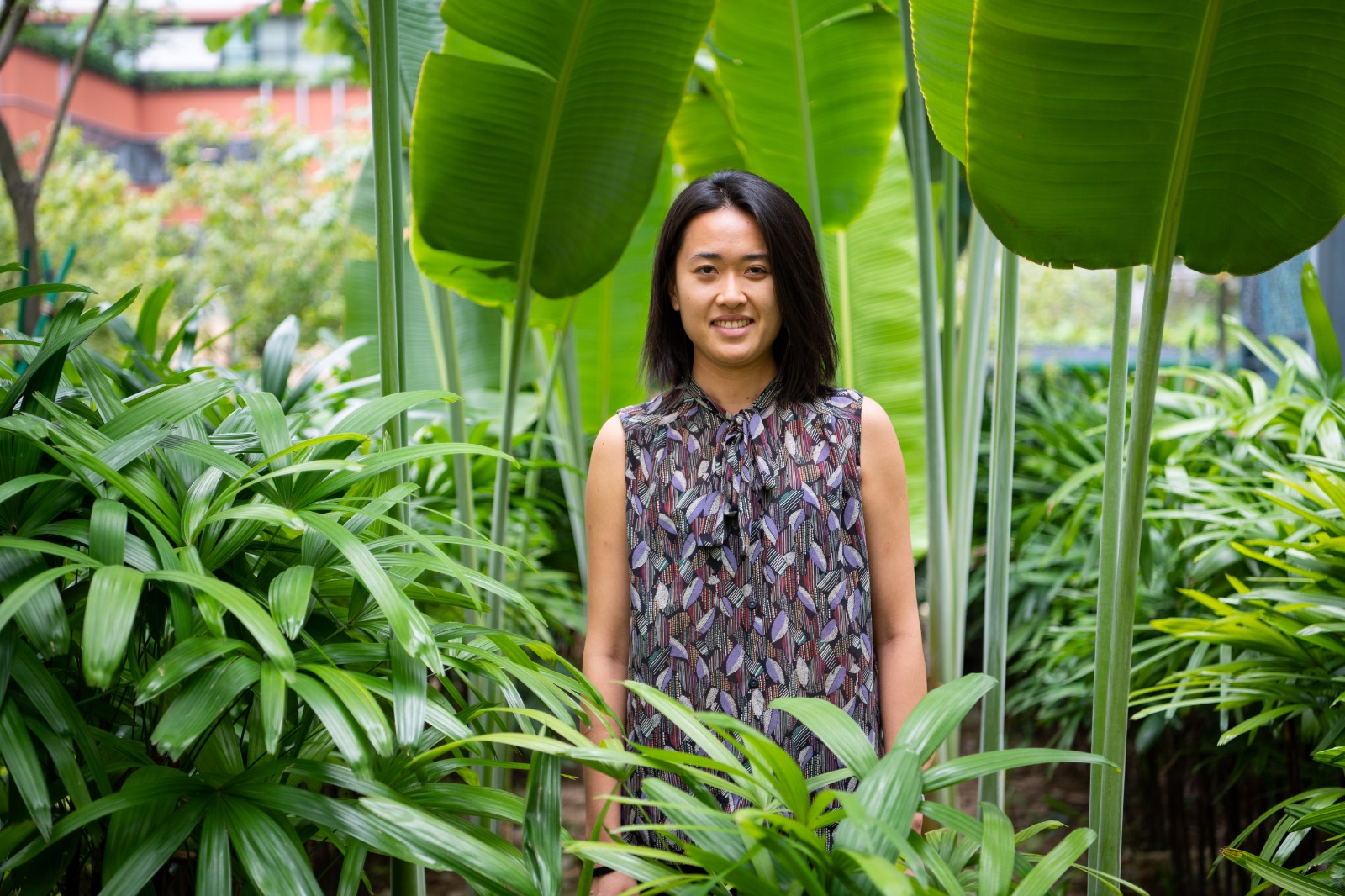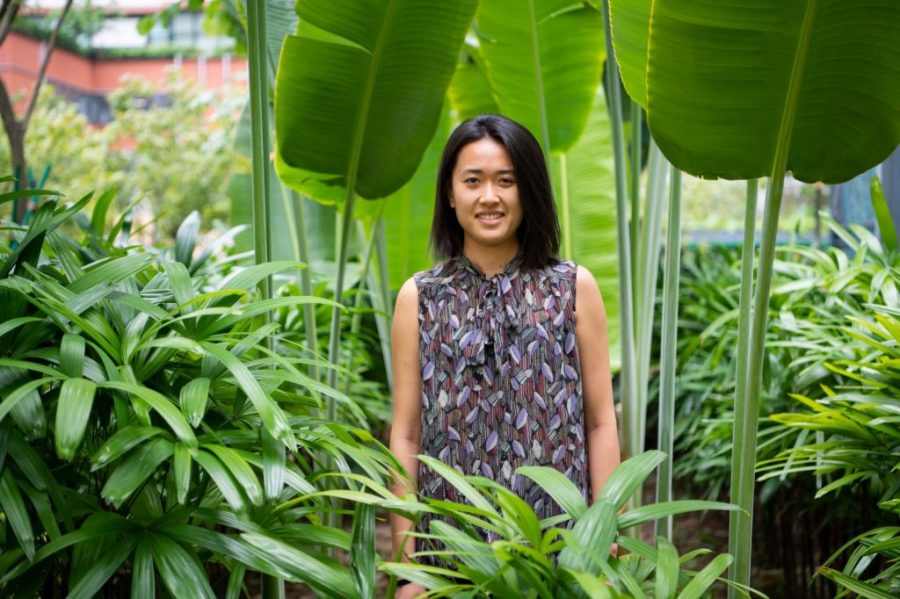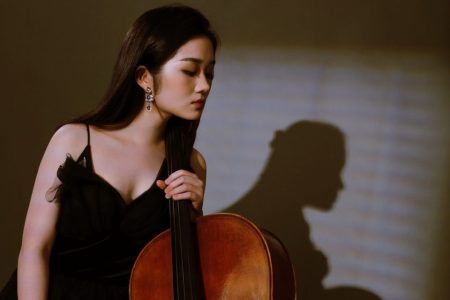Around the world there is a growing movement to curb plastic waste by discouraging, or even banning, the biggest source: single-use plastics. These include everything from plastic bags to packaging to drinking straws – the latest item to be targeted – and while many of us enjoy the convenience, others recognise that it comes at a high price.
Eco-activist and writer Annie Lao knows how destructive these innocuous items can be, and when Macao officials proved slow to act, she stepped up. Lao, representing a group of environmentally concerned citizens, recently submitted to the government a petition against single-use plastics that boasts more than 5,000 signatures. Speaking to the media and government officials with clarity and determination, she has made herself the new face of environmental activism in Macao.
Even as the government failed to comply with the request made in the petition – to respond with a press conference by 13 September – Lao pressed on, negotiating with the government and demanding concrete action.
“As a Macao citizen, we want to live in a clean and comfortable environment. We need to make our voice heard,” she asserted. “Otherwise, the government will think that there is no problem, and keep the same attitude [towards pollution] for the next 10 or 20 years.”
Recently, we sat down with Lao at the Taipa Central Park to discuss her passion for the environment and the pressing issues facing Macao’s fragile ecosystem. Her tone spoke of an eagerness for change – a common trait among those with a genuine care for the environment – and a deep dedication to making it happen.
The call of nature
Perhaps becoming an eco-activist was not a path Lao envisioned in her younger years. Born in Macao on 9 September, 1989, Lao grew up as the eldest of three children with a stay-at-home mother while her father chose a business career. To this day, she remembers her childhood as rather monotonous, with too much study and homework, and too little contact with nature.
“Macao is such an urbanised place and people keep telling you to get good grades to secure your future. How can you build up an environmental awareness when nature is so far away from you?” she reflected.
Lao did get good grades. She maintained as one of the top-10 students throughout her secondary education at Saint Paul School in Macao. With commerce-related subjects being her strongest area, she decided to pursue a degree in this field at the University of Sydney in 2008.
For Lao, it was an easy decision to go for a top-notch university in a country with beautiful weather and good quality of life. What she did not foresee was the impact of this experience on her world view. “It was the first time in my life that I had ever felt so close to nature – the fresh air, blue skies, and clear water. Once you’ve had this encounter, you realise what is truly important in your life and feel responsible for protecting it.”
Being a commerce student did not deter her environmental curiosity. By conducting research and speaking to knowledgeable people, Lao became aware of a variety of environmental issues to which many people were oblivious. “For instance, it was already five or six years ago when I was told by a friend that items as common as skin care products and toothpaste contain microplastics that could cause great harm to marine life, but I didn’t see many media discuss this at that time.”
Taking the lead
After completing her bachelor’s degree of Commerce in 2012, she started working in the accounting department at the University of Sydney. One and a half year later, she quit her job to begin a backpacking trip around Australia and Europe. In 2015, she returned to her hometown Macao. Being fluent in Chinese and English, she made a turn in her career and became a writer for a local company (whose name she preferred not to reveal). “Because I like writing and meeting interesting people. It offers me the chance to learn a lot of new things.”
Returning to Macao after her years in Australia, Lao couldn’t help but notice the contrast. Many things she had once considered normal now stood out as areas for concern. She became more sensitive to the polluted air and observed a lot of irresponsible behaviours towards the environment which made her feel uneasy. “Here in Macao, people don’t separate their waste. They don’t even bring reusable bags to the supermarkets.”
Fortunately, it wasn’t all negative: the more Lao talked about her concerns, the more she connected with like-minded people who were also trying to adopt a green lifestyle in Macao. They started an information-sharing group, exchanging tips on reusable products and everyday waste reduction strategies.
“Everywhere I go, I bring a shopping bag, water bottle, and a set of cutlery,” she said. “Waste reduction is all about better planning. Once we start practicing it, we will inspire other people will to follow.”
Demanding changes
What drove Lao and her friends to take public action was the startling figures revealed by the Report on the State of the Environment of Macao 2017, released in early August this year by the Environmental Bureau.
According to the report, in 2017, the solid waste of Macao reached 510,702 tonnes, translating to 2.16 kilos of solid waste per person per day, a figure significantly higher than the neighbouring regions of Hong Kong (1.41 kilos) and Guangzhou (0.98 kilos), and more than three times that of Shanghai (0.71 kilos).
“It is also the highest in the last 10 years,” she pointed out, “meaning the government has done nothing effective to reduce solid waste.”
The report also indicated that while organic waste (27.4%) made up the largest percentage of waste produced in 2017, plastic waste (23%) was a close second. To Lao, it was a problem in need of an immediate solution. “We have to understand that not every plastic product can be recycled,” she explained. “And burning them in an incinerator doesn’t mean that they are gone – incinerators produce a lot of pollutants that are detrimental to our health.”
Within two weeks, Lao and four friends had formed an ad-hoc group and started an online petition urging the administration to roll out measures banning plastic bags and single-use plastics such as plastic water bottles, take-out containers, cutlery, etc. To date, it has gathered more than 5,000 signatures.
On 30 August, Lao, as a representative of the group, delivered the petition to the Macao SAR Government Headquarters. Addressed to two of the top government officials in Macao – Secretary for Transport and Public Works Raimundo Arrais do Rosário and Environmental Protection Bureau Director Raymond Tam Wai Man – it calls on the government to promote zero waste policies, such as banning single-use plastic and unnecessary plastic packaging at local supermarkets, and requested them to respond with a press conference by 13 September.
“Everything done by the government is wrong, and severely lags behind global standards!” she exclaimed. “They have been planning a charge on plastic carrier bags since 2015, and it’s still up in the air.” Lao acknowledged that the government does give out rewards for not using single-use plastic bags through lucky draws, but contests that such limited programs are ineffective and do nothing to educate the public about the importance of waste prevention.
Disappointed, but not deterred
Unsurprisingly, the deadline of 13 September passed without any press conference or open response from the government. Instead, Lao received an email from the Environmental Protection Bureau, detailing their progress in introducing the plastic bag charge and the various anti-disposable plastic activities organised over the years, such as the lucky draw.
“Such information is not new to me.” Frustrated, Lao replied that she found their response unacceptable. On the next day, an official from the bureau called and invited her to a close-door meeting, which she firmly refused.
“From day one, we have been asking for a press conference, so that all Macao citizens will be able to participate,” she said. “Their response just shows that they don’t care about the environment. We are extremely disappointed.”
While continuing to demand effective action from the government, Lao and her friends are well aware that there is no time to lose in the fight against plastic waste. If the government is not ready to cooperate, they will rely on themselves and support from the public. Right now, the group is drafting a complaint letter to supermarkets in Macao, in the hope of eliminating unnecessary plastic wrapping on fruits and vegetables.
“I believe that we can do our part to make a difference. The [response to our petition] shows that Macao people do care about the environment,” Lao asserted. Many of the thousands of signatories left comments expressing their concern for a clean, healthy environment in the city – and the world more broadly. “That’s what keep us motivated and we will not give up.”






